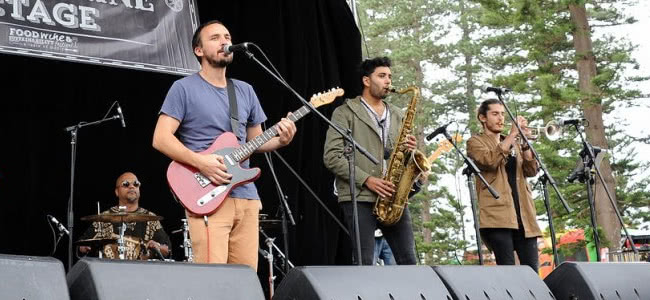Artists being asked to work for free in the interest of gaining invaluable “exposure” is nothing new. Often, the size of the company doesn’t matter. Even a shopping mall giant like Westfield, whose revenues exceed $1 billion annually, isn’t above the practice.
Nor is The Bachelor, the wildly popular Channel Ten reality series. As Tone Deaf reported in March, the producers behind the show, Warner Bros, put out a classified looking for an orchestra to play a piece of copyright-free music for free.
You can now add media giant Fairfax, the entity behind papers like The Age and the Sydney Morning Herald, to that list. They recently asked a Sydney band to play one of their events, but specified that there wouldn’t be any financial incentive, only “exposure”.
“Dear ASX200-listed-company Fairfax Media,” Black Bird Hum wrote on Facebook earlier this week. “Thanks for the recent offer to play at your Good Food Month event the ‘Night Noodle Markets’. For free.”
“We’re flattered to be on the radar of a company with an annual ‘Total Group Revenue of $1,867.2 million‘ (FY2016). We have, however, decided to decline the invitation to perform at the event on account of you deciding not to pay us.”
“We’re guessing that the sound tech who ran the PA on the night was paid; as were the graphic designers and marketing companies that did the event website, promo and marketing material; and the companies that supplied the lighting, tables, chairs and umbrellas; and the cleaners. And so on.”
“We’re guessing no one else was offered the chance to work on the event in exchange for ‘exposure’. We’re guessing you made a decision to pay everyone who worked on your event in ‘real money’ except the musicians.”
“In October alone, we will have performed 15 gigs across three states as Black Bird Hum. We will have been paid for all of these gigs, often by companies with annual total group revenues probably less than 0.1% of your company’s.”
Speaking to Crikey, Black Bird Hum member Nish Manjunath said that after being contacted by an agent representing Fairfax, the band reached out to other bands who’d played the event and found out that they also did not get paid.
“It has never been our intention to simply be on the take and not giving back,” a Fairfax rep told Crikey “We work with the artist community in a range of ways — including paid and promotional arrangements — but clearly we need to look at how we are engaging with everyone to ensure we are showing RESPECT.”
It remains a mystery why, as Black Bird Hum explain in their post, music seems to be so undervalued when companies understand the need to pay the other members of their creative team, whether it be graphic designers or web developers.
“These organisations know the value that music brings to their event or venue and pay accordingly,” the band write. “So to you, and any other corporation perpetuating the line that it’s ok to have musicians work for free – don’t call us.”
“We don’t want to work with you. To everyone else who pays musicians to bring positive vibrations to their events – RESPECT.”

































